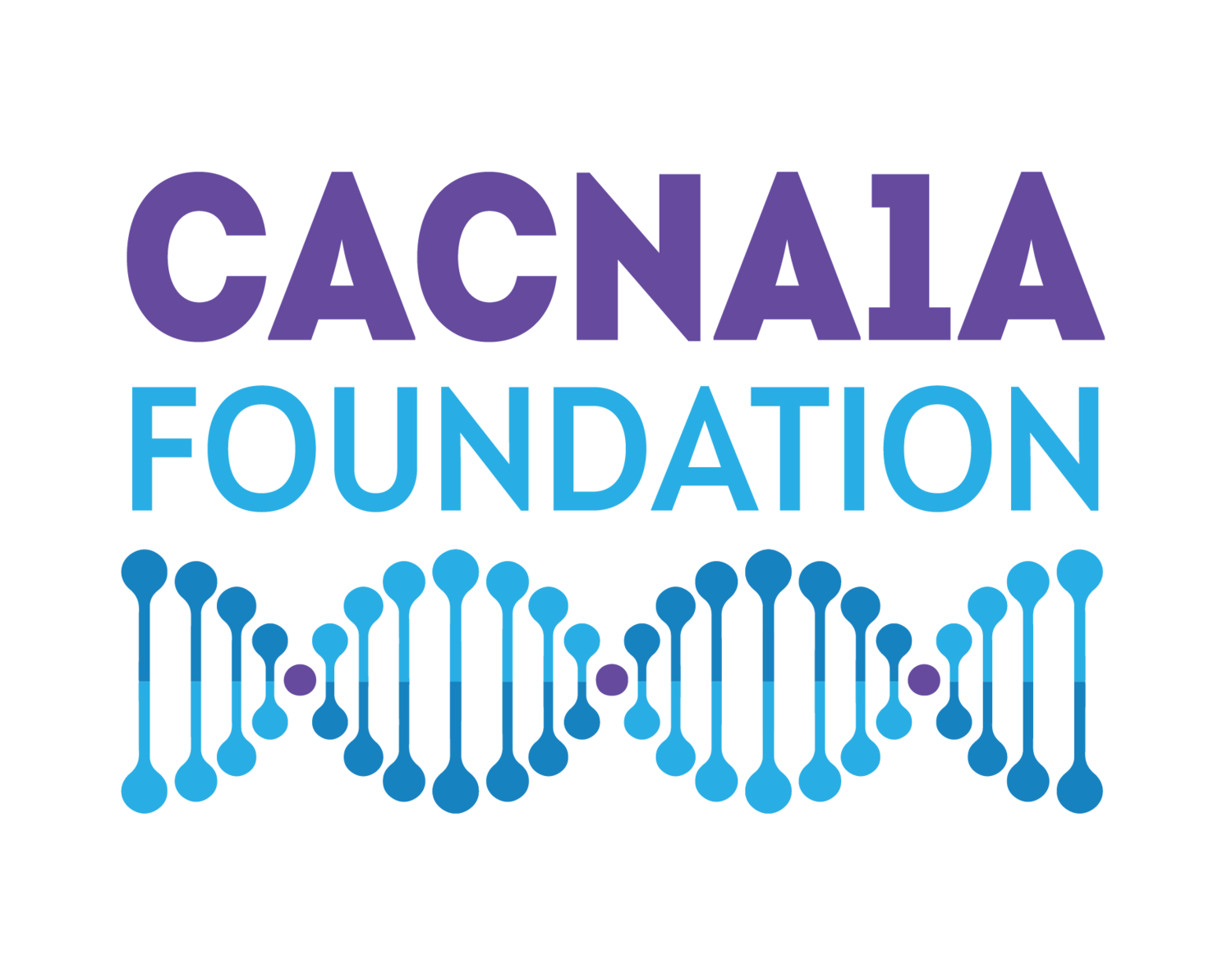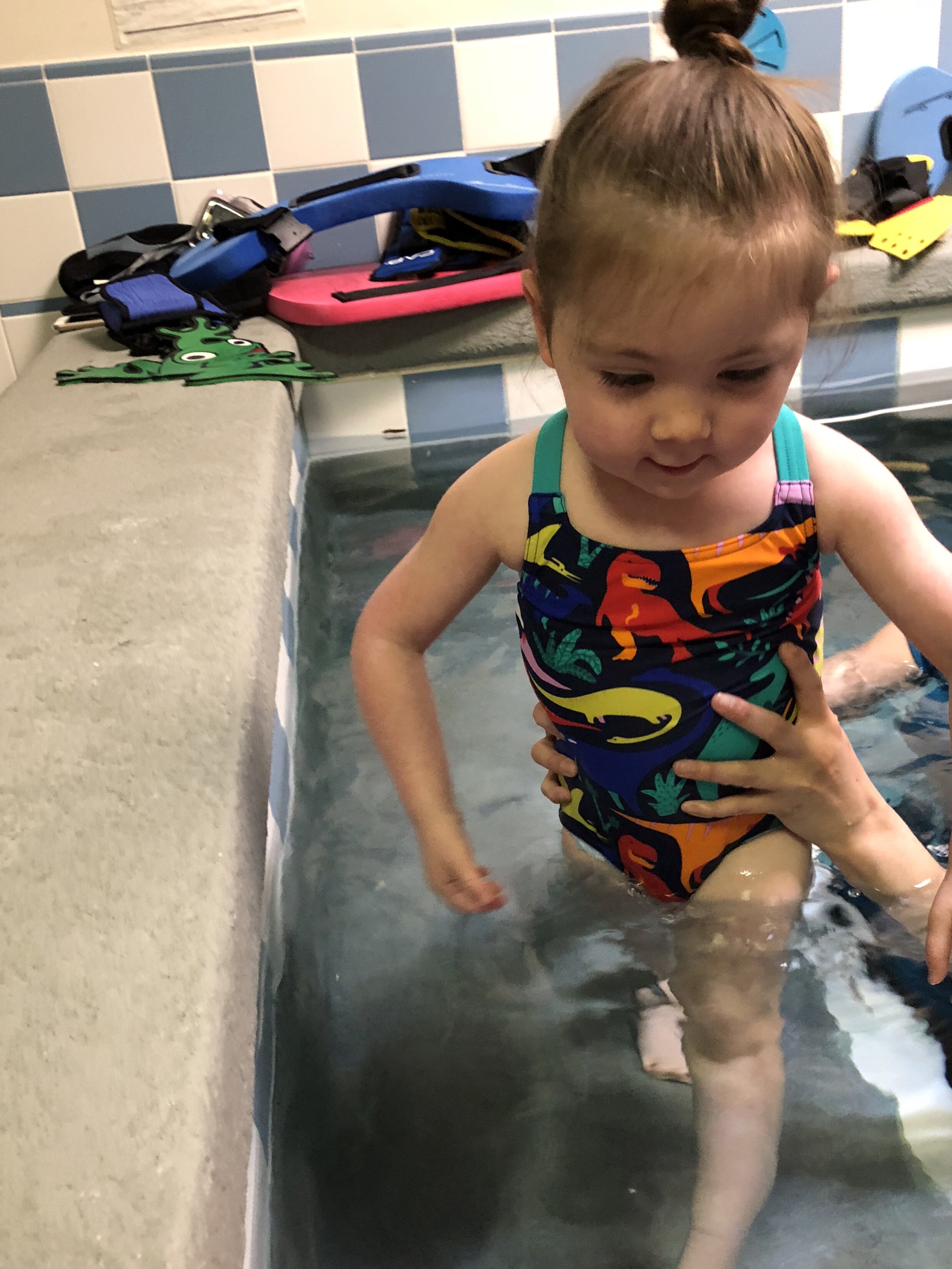Maren’s Story
Our ever-inspiring daughter, Maren, graced our family in 2015. She is technically our first child, as Maren is a twin. Twin A, to be exact. She has one of those infectious laughs that chimes through a room. Children and adults pine to be the recipient of her famous koala bear hugs. Maren is a true girly-girl who loves unicorns, princesses, dancing and her favorite color is, of course, pink. But don’t let her cute freckles fool you. Deep down she has gumption that resounds and fuels her motivation. It is truly awe-inspiring.
Variant:
p.R1667P (p.Arg1667Pro)
c.5000; G>C
Mixed Function Variant
History
Maren began to display concerning symptoms starting around the four-week mark. Over the next few months, she progressively lost the ability to feed through the coordination of the suck, swallow, breathe process that infants develop as one of their first motor control benchmarks. Our poor girl seemed to cry and appear to be in pain a lot, most often attributed to gastrointestinal issues. She woke 10-15 times a night during her first year. Maren’s height and head circumference were falling off the charts. The label “failure to thrive” was being discussed.
Milestones began passing by, while Maren’s twin sister seemed to develop on track and thrive. After a lot of occupational and physical therapy, around four months Maren began to slowly develop head control and gained some trunk support by eight months. Her low tone was global and affected every part of her body that was trying so hard to gain any strength it could.
Eventually after an MRI at seven months, Maren was diagnosed with Pontocerebellar Hypoplasia. However; she had no disease causing gene variants for this condition, even after Whole Exome Sequencing was performed. Specialists continued to say that research had just not caught up with our little girl and this cannot be ruled out.
Eventually we made the best decision we could by applying to the National Institute of Health’s Undiagnosed Diseases Program. There we met with the most brilliant, motivated and deeply caring specialists, whose sole job was to provide Maren with a diagnosis. Twenty-two months after her first NIH workup, we were finally given the CACNA1A gene variant diagnosis.
While Maren still cannot crawl or walk, she certainly does not let that slow her down. She uses a power wheelchair for mobility and continues to strengthen and improve using her gait trainer every day. It certainly was our family’s hope that Maren would be able to receive treatment for her condition to ensure she has the highest quality of life. So when we learned research for the CACNA1A gene was still in its infancy, we jumped at the opportunity to partner with other families looking to raise awareness, as well as funds for treatment and ultimately a cure.
Diagnoses
CACNA1A - Early Infantile Epileptic Encephalopathy 42
Pontocerebellar Hypoplasia, type unknown
Education
Maren has been engaged with services since she was two months old to include physical, occupational, speech and aquatic therapies, as well as intensive programs. She began attending preschool with a 1:1 aide at the age of three. A lot of preparation took place ahead of time to ensure the employees were properly trained on safety precautions and equipment. All of our hesitancy and fears were quickly alleviated as Maren thrived in the classroom and started her love of school.
Risks
Primary safety precautions that must be taken for Maren surround mobility and feeding. While Maren is a wheelchair user, she prefers to scoot on her bottom to play and engage with others, particularly in the classroom. Maren lacks protective reflexes and requires stability support to ensure she does not fall, particularly when reaching forward or in the quad position. Additionally, Maren’s hypotonia affects her chewing and swallowing strength. As a result, she requires all foods to be fed in small pieces and back support while drinking thin liquids to minimize her risk for aspiration.
For Those Newly Diagnosed
Find a support system, whether it is online or in-person. Communicating and receiving support from others you can assimilate with can greatly help through this journey.
Learn to trust others with your child. Even if this means having help within the home while you are there, it allows you to spend time with other children or take care of all the other daily essentials in our lives.
Take time away to care for yourself. This seems to be the hardest thing for us all. We are often the last priority of the day/week/year. However, we can’t pour from an empty cup. Try and start small with just a few minutes a day and build on it from there.


